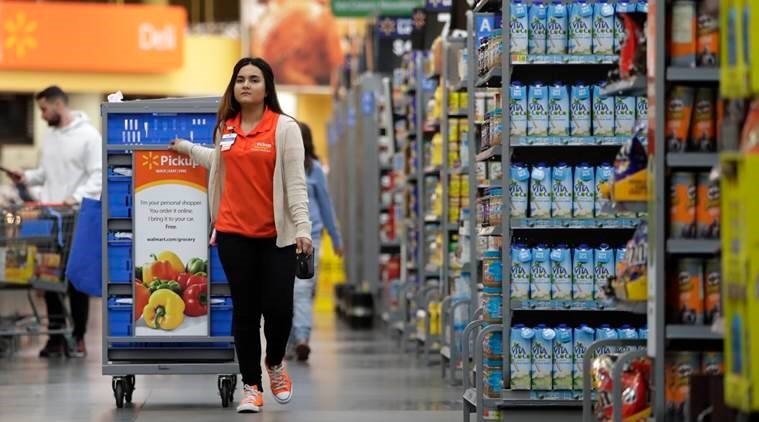[ad_1]
Indian consumers with a taste for the good life have much to look forward to this year, as several high-end lifestyle brands are set to enter or expand in the Indian market. From apparel to accessories, food to beverage, premium is the key word on the retail horizon. And, both e-commerce and offline players are readying for a slice of the pie.
“A lot of global high-end and retail fashion brands see India as the next destination, as China has slowed down with the stigma associated with Covid-19. Europe is a very mature market in this sense and has an ageing population; it has also reached a saturation point in terms of the luxury retail sector. So, in a 10-year horizon, a lot of global luxury brands are expected in India,” said business strategist and independent director Lloyd Mathias.
US clothing retailer Gap is all set for its second coming in India, this time on the back of a partnership with Reliance Retail, a subsidiary of Reliance Retail Ventures (RRVL).
Reliance Brands (RBL), another subsidiary of RRVL, forayed into food and beverage retailing, announcing a partnership with UK-based fresh food and organic coffee chain Pret A Manger. The plan is to build the global sandwich franchise’s brand in the country, with the first expected to open in Mumbai before March 2023.
Also read: What steps govt should take for MSMEs in tourism to thrive in 2023
Canadian coffee chain Tim Hortons made its India foray with outlets in Gurugram and Delhi in August 2022. It has plans to open around 120 stores in India in the next three years at an investment of up to Rs 300 crore.
Last year in September, lingerie, clothing and beauty retailer Victoria’s Secret opened its first store in Mumbai. Tushar Ved, president, Apparel Group, which brought the brand to India, shared that two more stores in Bengaluru in 2023 and an eventual online category (after a few years) are in the pipeline.
Luxury fashion brand Valentino opened in Delhi last year, with plans to open in Mumbai soon. Paris-based luxury department store Galeries Lafayette is expected to open in Mumbai by 2024 and Delhi by 2025.
While brands like Gap, Victoria’s Secret, Pret a Manger and Balenciaga have set foot in India for expansion at a time when the cost of living crisis and soaring inflation is expected to have a deep impact globally, experts feel this upward trend will fuel luxury retail in the country as the Indian economy is in a better position than other Western markets.
With GDP growth, affluent class, better disposable income and global exposure for Indians, Mathias sees an increased amount of high-end consumers here. “Even if 1% of India’s 1.4-billion population consumes luxury, it’s a huge number for brands foraying into India,” he pointed out.
Also read: 5 critical insights to know on consumer semi-discretionary space
In fact, a further indication of consumer optimism regarding personal finances is that roughly seven of 10 Indian consumers are fairly confident about their financial situation over the coming year, says Saptarshi Banerjee, senior lifestyle research analyst, Mintel.
“Consumers’ desire to purchase premium goods of higher quality at a marginally higher cost and revenge buying — which is in play among affluent Indian consumers who were not necessarily affected by the pandemic and want to spend more on luxury products, eating out, experiences after a prolonged lull — is another factor fuelling more luxury retail in India,” he says.
Mintel’s Indian Consumer Report on Attitudes to Premiumisation 2021 suggests half of Indians are willing to pay more for premium products of superior product quality. Banerjee is of the view that the subsequent retail growth in India would be around luxury goods. However, the brands should employ an omnichannel strategy to achieve widespread growth across the country. “Since the pandemic, numerous luxury brands are available online from retailers like Tata Cliq Luxury, Ajio Luxe, and even The Collective. As a result, foreign luxury brands can cater to the convenience offered by online platforms (that only sell luxury goods) and offer distinctive upmarket shopping experiences in their physical stores,” says Banerjee.
An upward trend that experts witnessed during the festive season sales last year continues this year too. DLF Malls strengthened its brand portfolio by adding 130 unique brands across its retail and F&B categories in its eight premium and luxury properties in Delhi-NCR. “We are 130% pre-Covid levels in terms of demand and occupancy across all malls. We expect to grow month-on-month in October-December with an average growth of 15-20%. Our luxury retail segment is growing between 150-170%,” says Pushpa Bector, executive director, DLF Retail, and head, luxury and shopping malls.
Delhi’s Select Citywalk saw 7-8% growth in demand and increased footfalls last year. “Supply chain issues have been minimised and retail stores are stocked up. Luxury shopping is back, so are the premium brand categories. Footfalls have increased, people are eager to shop, get entertained at physical shopping centres,” says Yogeshwar Sharma, CEO and executive director, Select Citywalk, Delhi.
Reliance’s new consumer goods push targets deals with popular Indian brands, besides launching its own brands.
Aditya Birla Fashion and Retail (ABFRL) is working on strategic alliances and building a comprehensive set of iconic brands. In FY22, ABFRL launched a premium ethnic wear brand, Tasva, in partnership with designer Tarun Tahiliani. In May 2022, Singapore’s sovereign wealth fund GIC entered into a deal to acquire a 7.5% stake in ABFRL for Rs 2,195 crore. ABFRL picked up a 51% stake in designer Masaba Gupta’s House of Masaba label for Rs 90 crore and plans to scale it up. The group also launched its ‘House of Brands’ business – TMRW – in the direct-to-consumer segment, besides foraying into a bouquet of brands and strategic partnerships with designers, including Shantanu & Nikhil, Tarun Tahiliani and Sabyasachi.
[ad_2]
Source link








